Tag der offenen Tür
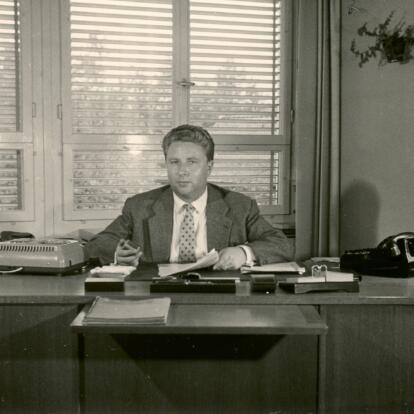
Helmut und Erich
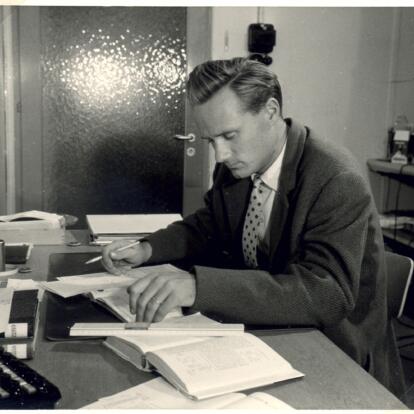
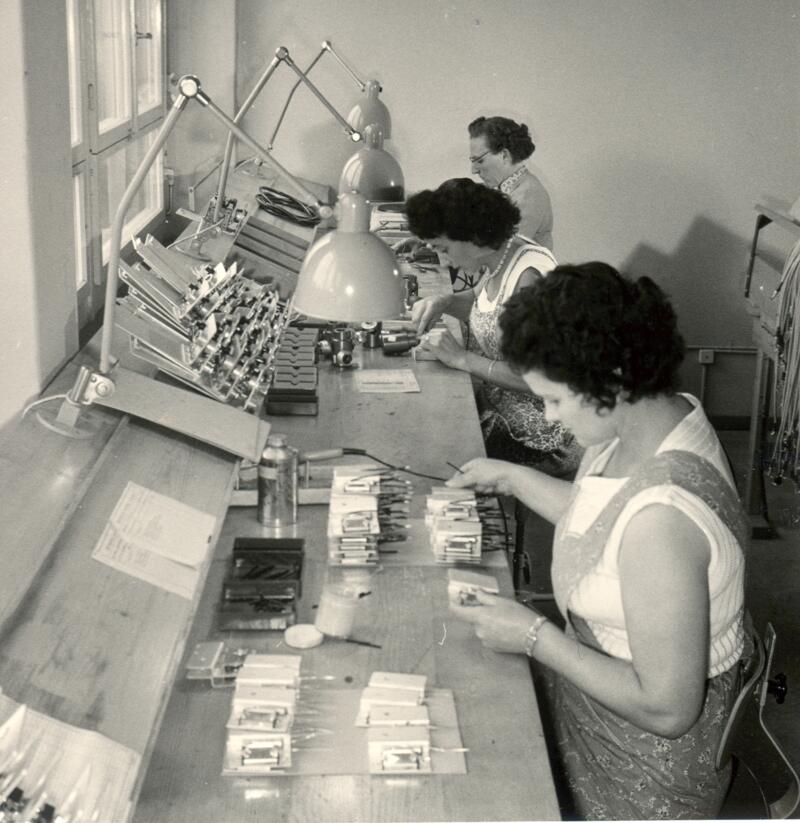
1957-1960
Growth – Even in Crisis
In 1958, the textile industry was hit by a severe crisis. But Loepfe continued to grow. The weft feelers helped weaving mills make optimal use of their machines, reduce costs, and maximize efficiency.
From 1957 onwards, Loepfe also produced standardized machine parts and was quick to adopt the newly developed semiconductor technology. This bold step made the devices more reliable and compact.
By 1960, the numbers spoke for themselves:
4,000 feelers in operation worldwide
Around 30 employees
Devices sold on every continent
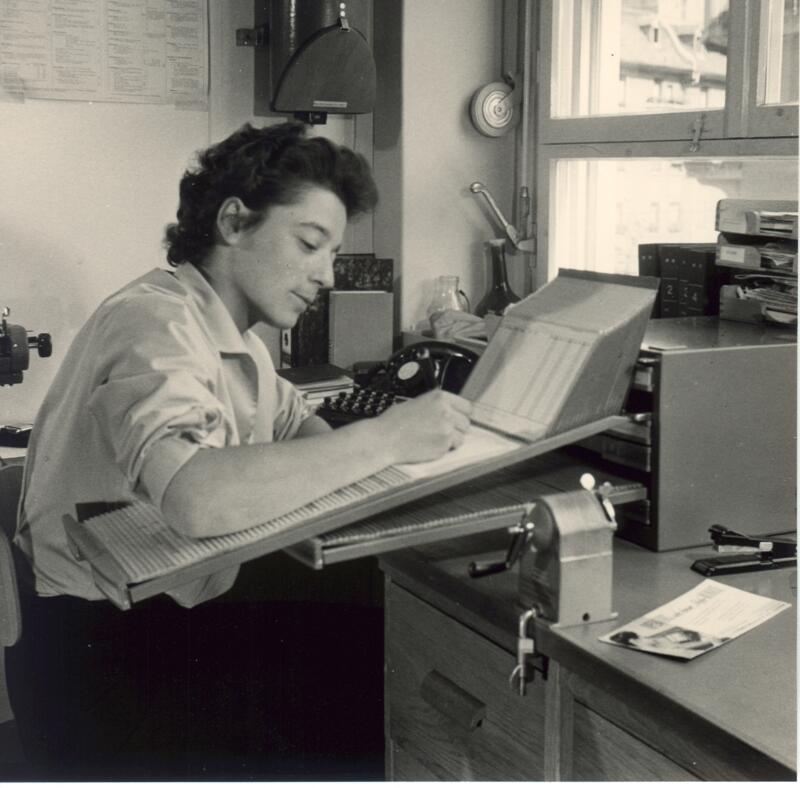
1959-1961
The Road to the Electronic Weft Stop
Loepfe aimed higher: a fully electronic weft stop – automatic error detection for weaving machines.
For the ITMA in Milan in 1959, the prototype had to be ready. Development was a challenge: ionic thread markings, infrared heat marks, piezoelectric crystals, photoelectric and magnetic systems – many were tested, most discarded.
On February 1, 1961, the breakthrough idea came from Hansruedi Stutz:
A roller in the threader, over which the weft passed, made its movement measurable – simple, ingenious, and practical.
From a “flash of inspiration” came a successful product.
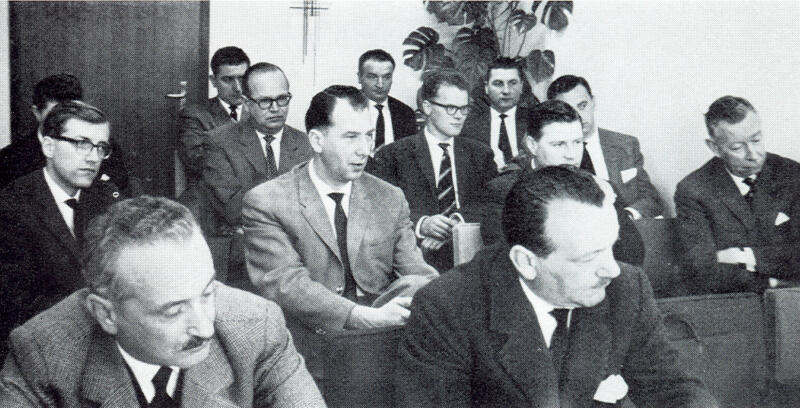
1970-1990
Innovation as a Principle – and Hard Years
Loepfe developed from a feeler manufacturer into a specialist for textile quality assurance. New products included:
Electronic yarn clearer FR (1962)
FR-600 Data-L (1985) – the first yarn clearer with length measurement
Electronic weft brake (1987)
But the 1980s also brought crises. At its peak in 1980, Loepfe employed 220 people – then the market collapsed, and 70 jobs had to be cut.
In 1983, Dr. Hermann Spinner took over and focused on spinning products – a decision that saved the company.
The big breakthrough came in 1991 at ITMA Hannover: YARNMASTER – the first yarn clearer with foreign fiber detection. A new world standard.

2000s to today
High-Tech with a Human Touch
As textile production shifted to Asia, Loepfe expanded its network there. Today, more than 50% of sales come from China and India.
Yet Loepfe has remained distinctly Swiss: development, production, and service are still based in Wetzikon.
With YARNMASTER® PRISMA, Loepfe set another milestone:
Fusion of optical and capacitive measurement
Detection of even transparent foreign fibers such as white polypropylene
Increased quality assurance, less waste, and higher productivity

2025
70 Years of Innovation, Courage and Precision
Loepfe looks back on:
More than 2 million sensors installed worldwide
A well-established network in over 50 countries
Pioneer achievements: the first opto-electronic weft feeler (1956), the first yarn clearer with integrated foreign fiber detection (1991), and the YarnMaster® PRISMA (2019) – the world’s first yarn clearer with dual sensor technology
The anniversary motto says it all:
“70 Years of Loepfe – a tradition of innovation.”
It is a promise: The pioneering spirit will never stop. From a small team with a dream to a global innovation leader – and the journey continues.